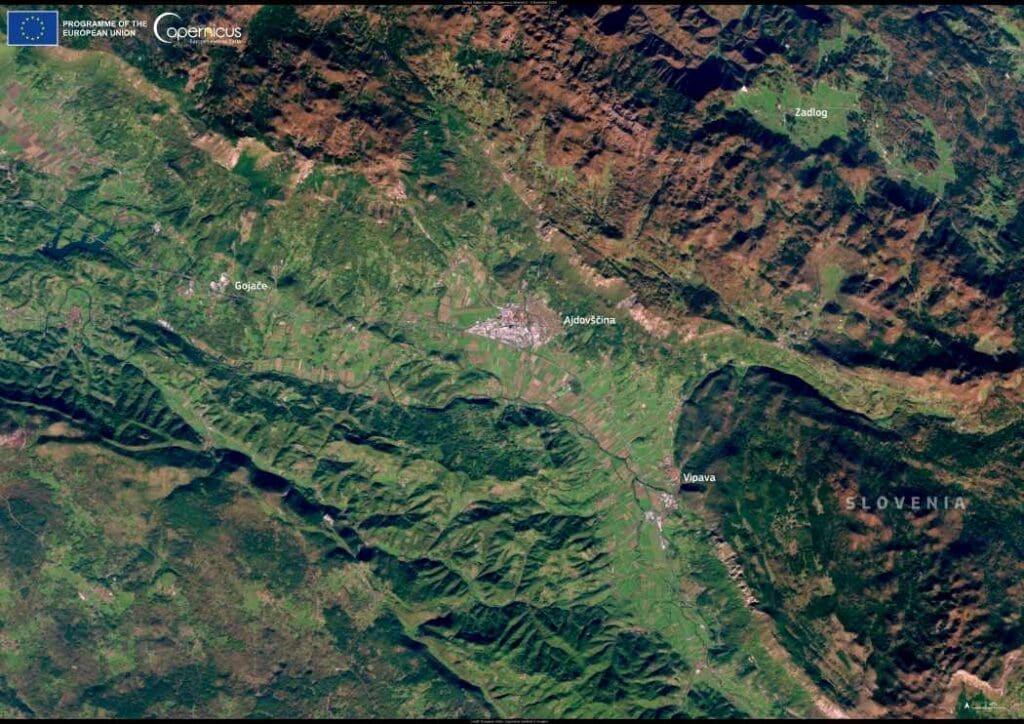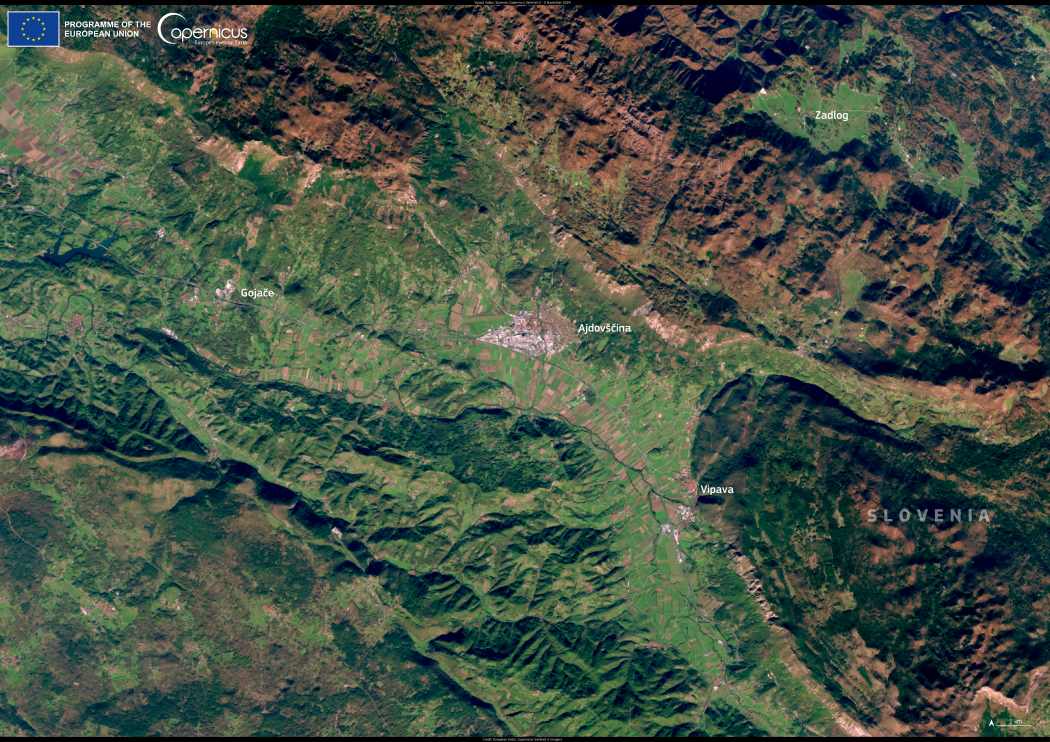This image, captured by the Copernicus Sentinel-2 satellite on 5 November 2024, highlights the Vipava Valley in southwestern Slovenia, a region known for its Mediterranean climate, fertile soil, and strong winds. The valley is a key agricultural area, particularly for vineyards and fruit orchards, with the Vipava River playing a crucial role in local farming and biodiversity.

The town of Ajdovščina, visible in the image, has historical significance dating back to Roman times and remains an economic hub for the region. Municipalities in the Vipava Valley are part of the Slovenia Green scheme, a national initiative promoting sustainable tourism.
Copernicus Sentinel data helps track land use, agriculture, and environmental changes, supporting sustainable development and conservation efforts in Slovenia and across Europe.
Featured image credit: European Union, Copernicus Sentinel-2 imagery




